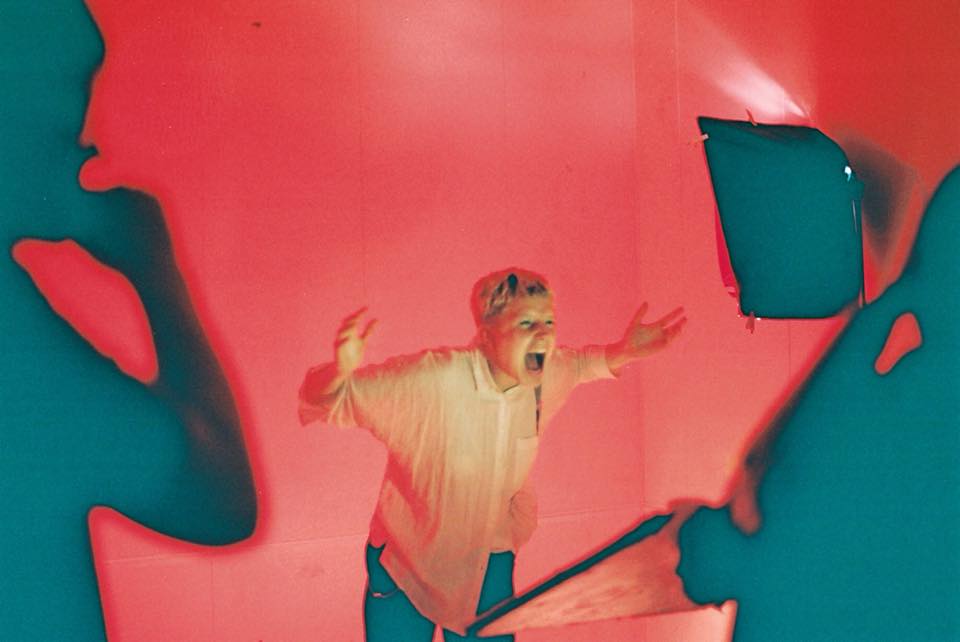DANIEL LUBIN interviews NICK FERRIS and LOVIS MAURER about UCL Drama Society’s upcoming production of Electra.
The 5th century BC, Ancient Greece. The 1970-80s punk rock scene. 2018. UCL Drama Society’s upcoming production of Sophocles’ Electra will merge ancient Greek tragedy with the iconic era of punk rock. I spoke to producer Nick Ferris and director Lovis Maurer about the marrying of these two periods, and about rebellion in the past, the present, and the play itself.
The team originally picked the play for all the potential that Greek drama holds, and its adaptability. “The way they’re still so powerful,” Nick says, “is that they discuss timeless themes”, something undeniably true given the quantity of ancient Greek drama on the current London stage. “In this way they really lend themselves to reinterpretation in exciting and effective ways”.
“I always found an interesting epic nature that all Greek plays have and I like that everything’s larger than life”, Lovis says, discussing how his attention was originally caught by these stylistic aspects. But it was with further research that the themes of grief, depression and rebellion in the play caught his eye, and how these enabled a natural marriage of the punk rock aesthetic with the ancient drama. “Electra is quite a rebellious character anyway, her entire persona is very much against those above her, against the society that surrounds her, so in a way that brought a very clear direction of where we wanted to go stylistically”.
To Nick, “the canon of classical mythology offers a really appealing kind of escapism”; Lovis adds that “it’s got a similar nature to, for example, fairy tales, in that everything is about human nature so to speak.” Nick goes on “I think society has a tendency to idealise this particular moment of history in Athens when they were making Greek tragedies. We’re all kind of party to that.”
Indeed, in just the same way the punk rock scene has become a glamorised cultural relic. Lovis discusses how the thread that weaves Electra together with the punk rock era and our own is rebellion. “Youth culture and rebellion have always been somewhat synonymous. There’s always a new generation interested in new things that clashes inherently with what’s come before.” Specifically with the ‘80s, it has come to be viewed as a period in which “everything became bigger”. Nick draws this trend into the present: “I guess at the moment our society’s in an interesting position because, like in the ’80s, in the UK and America there are socially repressive conservative governments that incite a real urge to rebel.” Yet it would seem that the present day lacks such an actively vibrant aesthetic to rebel through: “style at the moment is looking back, if you think about the style at the moment it’s like retro ‘80s whatever… it’s symptomatic of a kind of instinct we have to rebel, but it’s hard to express where you want to go, because to some extent it’s already happened.” In this context, it’s clear why one would be drawn to situate a play about rebellion in an era when rebellion had such artistic prominence.
The way we look back at these periods and reflect on the present with them in mind ties in deeply with the themes of the play. “I would say also there’s a sense of nostalgia for rebellion, where looking back it’s very easy to pinpoint what went wrong in the past,” Lovis says, “the popularity of march events on Facebook for example: everyone clicks attending but the ‘interest’ clicks don’t correspond to the attendance at the actual event.” We are hooked on thinking retrospectively and neglect evaluating the present and future. “Electra in the play does a lot of that as well; she goes on a lot about what’s happened in her past rather than trying to improve her present.” The production plays with time more generally, as the narrative parallels Electra’s rebellion against that of her mother, Clytemnestra. As Lovis identifies, rebellion relies upon this kind of generational shift, where the values of the old suddenly clash with those of the new.

Capturing this nostalgic view of rebellion is the team’s construction of Electra herself: “we’ve chosen to kind of have her a teenage angsty girl, a common trope in idealistic views of revolution.” The narrative sees Electra’s youthful idealism come up against bitter reality, something that is reflected in the production’s technical elements. In the early stages Lovis says “the set is in one colour, and everything makes a lot of sense to her … but as the play goes on the set and attitude gets more realistic as she has to realise her intentions. She never gives up her idealism but it gets more difficult as she has to confront those things she holds strong values about.”
Electra promises to explore the human tendency towards rebellion, playing to and critiquing its glamorisation. As the production pulls its audience through the ancient and the modern, exploring a commonality across generations and across millennia, it will interrogate the aspect of the human condition that urges to rebel. As Lovis says, rather than exploring the specifics of a historical phenomenon, be it the ancient Greek or that of our recent culture, this Electra “will go more to the nature and psychological workings of a rebellious mind.”
Electra is playing at the Shaw Theatre from 1st-3rd March. Find tickets and more information here.
Featured image designed by EJ Oakley.





